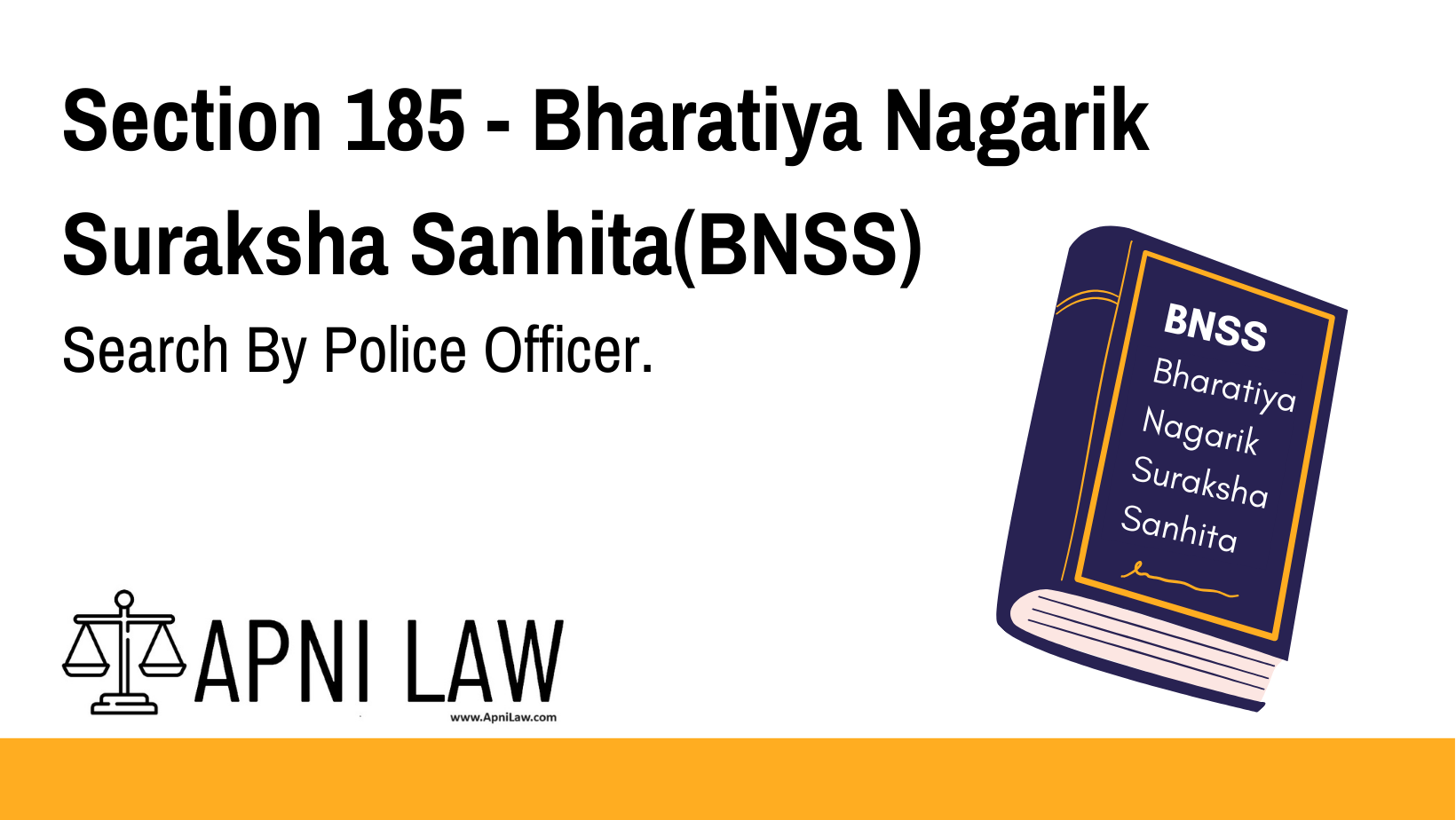BNSS Section 185: Search Without Warrant
This section of the Bharatiya Nagarik Suraksha Sanhita (BNSS) outlines the circumstances under which a police officer can conduct a search without a warrant.
Code:
BNSS Section 185
Explanation:
Section 185 grants police officers the power to conduct searches without a warrant in specific situations:
- Reasonable Grounds: The officer must have reasonable grounds to believe that evidence related to an offense they are investigating can be found at a particular location.
- Necessity: The officer must believe that obtaining the evidence through other means would cause undue delay.
- Limited Scope: The search is limited to the police station’s jurisdiction.
Illustration:
Imagine a police officer investigating a theft. They have reason to believe the stolen items are hidden in a specific house within their jurisdiction. If they believe obtaining a warrant would be time-consuming and hinder the investigation, they can conduct a search under Section 185.
Common Questions and Answers:
Q1: Can the officer search any place they want?
No. The search must be within the limits of the police station the officer is in charge of or attached to.
Q2: What must the officer record?
They must record the grounds of their belief in the case-diary, specifying the items they are searching for.
Q3: Does the officer have to conduct the search personally?
If practicable, yes. However, they can delegate the search to a subordinate officer in certain circumstances, but they must record their reasons and provide a written order.
Q4: What are the requirements for recording the search?
The search must be recorded through audio-video electronic means, preferably by mobile phone.
Q5: What happens after the search?
Copies of the records must be sent to the nearest magistrate within 48 hours. The owner or occupier of the searched place can obtain a copy from the magistrate.










